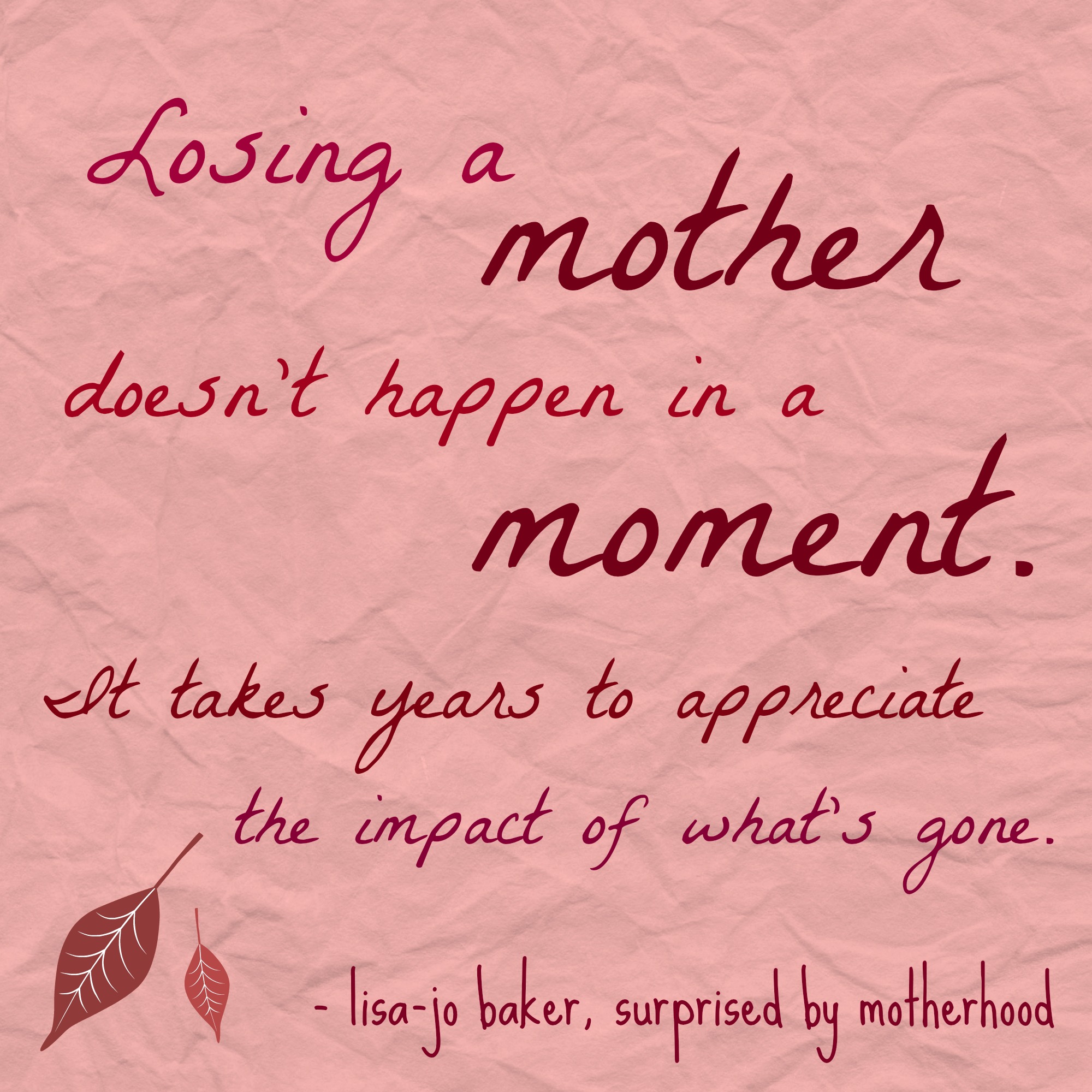Let’s just cut to the chase, okay? Losing a mother is one of the hardest things anyone could ever go through, period. It’s like losing a piece of yourself, your anchor, and sometimes even your entire world. When you say “sorry for your loss,” it feels like such a small phrase for such an enormous pain. But here’s the thing—acknowledging the pain is the first step toward healing. And that’s what we’re gonna talk about today. How do you navigate this unimaginable loss? How do you keep going when it feels like everything has stopped? Let’s dive in, because you don’t have to face this alone.
Death is something we all know will happen eventually, but when it comes knocking on your door, it’s never the right time. The grief that comes with losing a mother isn’t just emotional—it’s physical, mental, and spiritual. It’s a whirlwind of feelings that can leave you questioning everything you thought you knew. And trust me, I’ve been there. The days after my mom passed felt like I was living in a fog, trying to make sense of a world that didn’t seem to care anymore. But here’s the kicker: you’re stronger than you think, and you deserve to feel supported through this.
This article isn’t just about offering platitudes or generic advice. It’s about diving deep into the complexities of grief, understanding what it means to lose a mother, and finding ways to honor her memory while moving forward. So grab a cup of coffee, tea, or whatever helps you feel grounded, and let’s talk about how to navigate this journey. Because saying “sorry for your loss” is important, but what happens next is where the real work begins.
- Leg Day Quotes Pump Up Your Motivation For Stronger Legs
- Pastor Appreciation Sayings That Touch The Heart
Understanding the Depth of Grief
Grief isn’t just a single emotion; it’s a kaleidoscope of feelings that can change from day to day—or even hour to hour. When you lose a mother, it’s like losing a part of your foundation. She was your rock, your confidante, and sometimes even your best friend. Now, that space feels empty, and it’s natural to feel lost. But here’s the deal: grief is normal, and it’s okay to feel it fully. In fact, it’s necessary.
What Does Grief Look Like?
Grief can manifest in so many different ways. Some days, you might feel like crying nonstop, while other days, you might feel numb. That’s all part of the process. According to experts, grief often involves five stages: denial, anger, bargaining, depression, and acceptance. But here’s the kicker—these stages don’t always happen in order, and you might revisit them multiple times. It’s not a linear journey, and that’s okay.
- Denial: At first, you might think, “This can’t be happening.” It’s your mind’s way of protecting you from the overwhelming reality.
- Anger: You might feel mad at the world, at God, or even at yourself. Why did this happen? Why now? These questions are valid, and it’s okay to feel angry.
- Bargaining: “If only I had done something differently.” This stage is all about wishing for a different outcome, even though you know it’s impossible.
- Depression: This is where the weight of the loss really hits you. You might feel sad, lonely, or even hopeless. It’s a tough stage, but it’s a crucial part of the process.
- Acceptance: Eventually, you start to come to terms with the loss. Acceptance doesn’t mean you’re okay with it—it just means you’re learning to live with it.
Remember, there’s no timeline for grief. Some people might move through these stages quickly, while others might take years. And that’s okay. Your journey is uniquely yours.
- Heartfelt Rip Quotes For Uncle Honoring A Beloved Family Member
- Confident Captions For Instagram Boost Your Game And Captivate Your Audience
Finding Ways to Honor Your Mother
One of the most powerful ways to navigate the pain of losing a mother is by honoring her memory. Whether it’s through rituals, traditions, or simply keeping her legacy alive, these acts can bring comfort and meaning to your life. Let’s explore some ways you can honor your mom in meaningful ways.
Create a Memory Box
A memory box is a beautiful way to keep your mom’s presence alive. Fill it with photos, letters, mementos, or anything that reminds you of her. Every time you open the box, you’ll feel like you’re reconnecting with her in some way. It’s like creating a little time capsule of her love and wisdom.
Plant a Tree or Garden
Planting a tree or starting a garden in her honor is a beautiful way to symbolize growth and renewal. Watching something grow can remind you of the life she gave you and the impact she had on the world. Plus, it’s a project that can bring you peace and joy as you tend to it over time.
Volunteer in Her Name
If your mom was passionate about a particular cause, consider volunteering in her name. Whether it’s working with children, helping the elderly, or supporting a charity she cared about, this is a way to keep her spirit alive. It’s like carrying her torch and making the world a better place in her honor.
Dealing with the Emotional Turmoil
Emotional turmoil is a natural part of grieving, but it can feel overwhelming at times. Here are some strategies to help you manage those intense feelings and find a sense of peace.
Talk It Out
Talking to someone you trust—whether it’s a friend, family member, or therapist—can be incredibly healing. Sometimes, just saying the words out loud can help you process your emotions. If you’re not ready to talk to someone in person, journaling can also be a powerful outlet for your feelings.
Practice Self-Care
Self-care isn’t just about bubble baths and face masks (although those can help!). It’s about taking care of your mental, emotional, and physical well-being. Make sure you’re eating well, getting enough sleep, and moving your body in ways that feel good to you. Even small acts of self-care can make a big difference in how you feel.
Lean on Your Support System
You don’t have to go through this alone. Reach out to friends, family, or support groups who understand what you’re going through. Sometimes, just knowing that someone else is there for you can make all the difference. And if you’re struggling to find support, consider reaching out to a grief counselor or therapist who specializes in loss.
Building a New Normal
After losing a mother, life feels different—sometimes even unrecognizable. But over time, you’ll start to build a new normal. It won’t look the same as before, but it can still be beautiful in its own way. Here’s how to start creating that new normal.
Set Small Goals
Setting small, achievable goals can help you regain a sense of control and purpose. Whether it’s going for a walk, reading a book, or learning a new skill, these little victories can add up and help you feel more like yourself again.
Find Joy Again
It’s okay to find joy again after losing a mother. In fact, it’s important. She would want you to live a full and happy life. Whether it’s through hobbies, travel, or spending time with loved ones, find ways to bring joy back into your life. It doesn’t mean you’ve forgotten her—it means you’re honoring her by living your best life.
Embrace Change
Change is hard, especially when it’s forced upon you. But embracing change can help you grow and evolve in unexpected ways. Think of it as an opportunity to reinvent yourself and create a life that honors both her memory and your own dreams.
Long-Term Healing
Grief doesn’t have an expiration date, but over time, it does become more manageable. Here’s what long-term healing might look like and how you can continue to grow through your pain.
Revisit Your Grief
Grief isn’t something you “get over.” It’s something you learn to live with. There will be days when the pain feels fresh again, and that’s okay. Allow yourself to revisit your grief when it comes up, and don’t be afraid to seek support if you need it.
Keep Her Legacy Alive
One of the most beautiful ways to heal is by keeping your mother’s legacy alive. Whether it’s through storytelling, passing down traditions, or continuing her work, you can ensure that her impact lives on through you.
Practice Gratitude
Gratitude isn’t about ignoring your pain; it’s about finding beauty in the midst of it. Start a gratitude journal or take a few minutes each day to reflect on the things you’re thankful for. It might not seem like much, but over time, it can shift your perspective and help you find peace.
When to Seek Professional Help
While grief is a natural process, there are times when it’s important to seek professional help. If you’re feeling stuck, overwhelmed, or unable to function in your daily life, a therapist or counselor can provide the support you need. Here are some signs that it might be time to reach out for help:
- Persistent feelings of hopelessness or despair
- Difficulty performing daily tasks
- Thoughts of self-harm or suicide
- Feeling disconnected from loved ones
Remember, seeking help is a sign of strength, not weakness. You deserve to feel supported and cared for during this difficult time.
Supporting Others Through Loss
If someone you know is grieving the loss of a mother, there are ways you can support them without saying much at all. Sometimes, just being present is the best thing you can do. Here are some tips for supporting someone through this difficult time:
Listen Without Judgment
Let them talk about their feelings without offering advice or trying to “fix” things. Sometimes, all they need is someone to listen.
Offer Practical Help
Offer to run errands, cook meals, or help with household chores. These small acts of kindness can make a big difference when someone is overwhelmed by grief.
Check In Regularly
Grief doesn’t disappear after the funeral. Keep checking in on your loved one, even months or years later. A simple text or phone call can remind them that they’re not alone.
Conclusion: Moving Forward with Love
Losing a mother is one of the hardest things you’ll ever go through, but you’re not alone in this journey. Grief is a natural part of life, and while it can feel overwhelming at times, it’s also a testament to the love you shared with her. By honoring her memory, practicing self-care, and finding ways to move forward, you can create a life that honors both her legacy and your own dreams.
So the next time someone says, “Sorry for your loss,” remember that those words carry weight. They’re an acknowledgment of your pain and a reminder that you’re not alone. And if you’re reading this because you’re grieving, I want you to know that it’s okay to feel the way you do. You’re allowed to cry, to laugh, to question, and to heal. And most importantly, you’re allowed to live a full and meaningful life in her honor.
Now, take a deep breath, and know that you’re stronger than you think. And if you need more support, don’t hesitate to reach out. You’ve got this.
Table of Contents
- Sorry for Your Loss: Navigating the Pain of Losing a Mother
- Understanding the Depth of Grief
- What Does Grief Look Like?
- Finding Ways to Honor Your Mother
- Create a Memory Box
- Plant a Tree or Garden
- Volunteer in Her Name
- Dealing with the Emotional Turmoil
- Building a New Normal
- Long-Term Healing
- When to Seek Professional Help
- Supporting Others Through Loss
- Conclusion: Moving Forward with Love



Detail Author:
- Name : Mr. Ignatius Ullrich V
- Username : wkulas
- Email : antonina21@schiller.com
- Birthdate : 2004-02-04
- Address : 696 Brandon Pike Suite 246 Corbinland, KY 79561
- Phone : (660) 951-2076
- Company : Howe-Hirthe
- Job : Law Enforcement Teacher
- Bio : Similique voluptas consequatur vel deleniti. Et voluptatem eaque sint explicabo.
Socials
linkedin:
- url : https://linkedin.com/in/veum2014
- username : veum2014
- bio : Unde est rerum eum quod.
- followers : 4520
- following : 846
instagram:
- url : https://instagram.com/adolphus_xx
- username : adolphus_xx
- bio : Nobis sequi facilis reprehenderit enim in. Ut non fugiat consectetur quia nam.
- followers : 724
- following : 428
twitter:
- url : https://twitter.com/aveum
- username : aveum
- bio : Nihil laudantium ipsa dolores amet. Minus assumenda maiores accusantium aut id. Error aspernatur fugit unde consequuntur. Provident et laudantium ut harum aut.
- followers : 5706
- following : 61